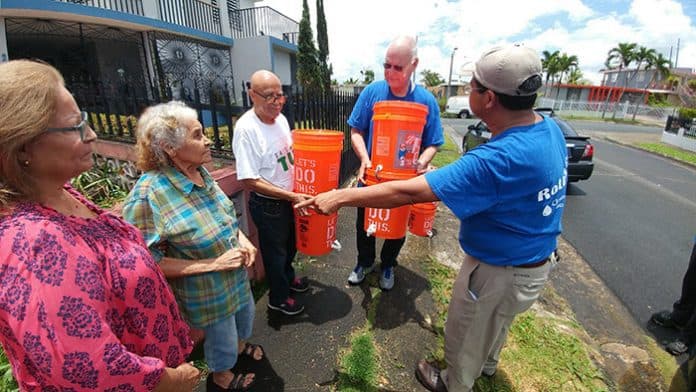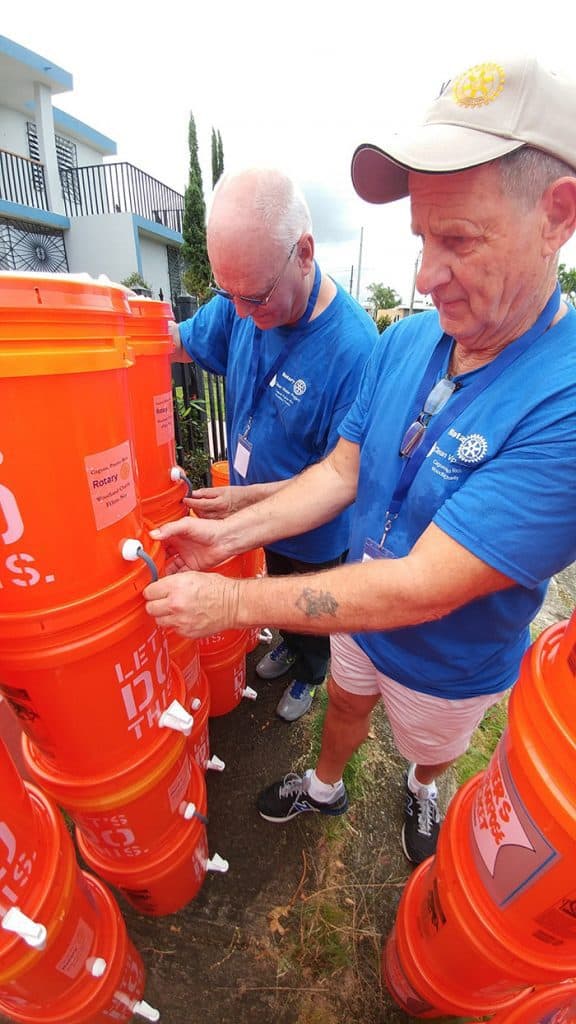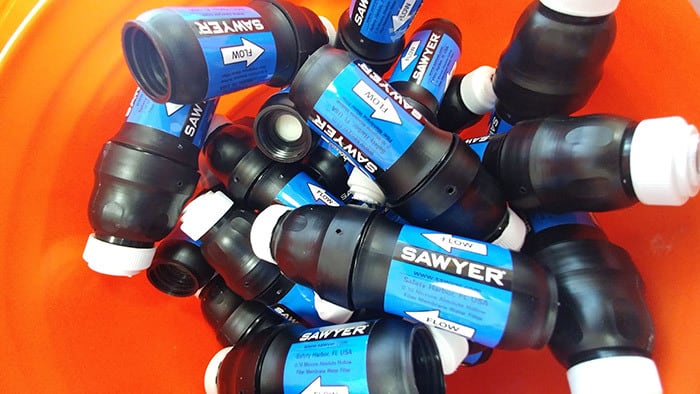
PUERTO RICO – Some local residents are still recuperating from Superstorm Sandy, and that was six years ago. It’s only been months since Hurricane Maria devastated Puerto Rico, and a lot of work still needs to be done.
Officially, 64 people lost their lives in the hurricane in September. However, data is being released that shows that due to a lack of electricity, clean water, and medical supplies, the real number of fatalities could be hundreds or even thousands.
People have compassion for the people of Puerto Rico, who are American citizens. They want to donate money, but sometimes, it’s hard to see what your money is being used for. That’s why it’s better to find people who are on the ground, working directly to help people.
A group of six Rotary Club members from Atlantic City and Ocean City went to Puerto Rico to assemble and install water filters in people’s homes. Then, families and local leaders were trained on how to use them and maintain them. There were 137 filters purchased. It’s estimated that the group’s efforts will provide clean water to more than 1,000 residents. (And they’re looking to purchase more – see below.)

“Eight months after Hurricane Maria struck Puerto Rico, much of the island remains devastated,” wrote Don Guardian, past Rotary district governor. He is also the former mayor of Atlantic City and is currently the business administrator in Toms River. He said it was an eye-opening experience to see what we take for granted in our relatively comfortable surroundings. “Now, if you have vacationed in the past few months in Isla Verde, Condado or old town San Juan, you would return with the feeling that everything is fine. Simply travel to the higher elevations in San Juan or Caguas and you would see a different story.”
“Electricity was restored less than a month ago to habitable homes while other homes are condemned and abandoned. Water was restored but is not safe in many areas. Gastrointestinal problems are rampant, streets and roads have collapsed with many sewer pipes now damaged and open to the street. In some neighborhoods, next to nearly every home’s mailbox on the street is a government issued rattrap. Homes have walls and floors but no roofing – rather a tarp that would remind you of a tent at the scout camp of your youth,” he explained.
The team of volunteers was led by Jorge Coromac, a Rotarian from Kansas City. The group was partnered with Woodland Public Charity.
The team met with William Torres, the mayor of Caguas, Puerto Rico. He explained the dire situation in his region, Guardian explained. Doctors and nurses are leaving at the rate of two a day. One resident spoke about how houses just appeared out of nowhere, carried by the storm.
The residents were very gracious, Guardian said. Despite waiting months for clean drinking water, they spaced them out, so that families could share a filter in order to get the most out of each one.

How You Can Help
The easiest way to help people in this way is to send a check to the Rotary for this project. A single filtration system costs $50. For that $50, a neighborhood can get a system that can clean 300 gallons a day for 20 years. It works without needing electricity.
To sponsor one or more filters, mail a check to:
Ocean City Rotary Charities, Inc.
PO Box 1187
Ocean City, NJ 08226







